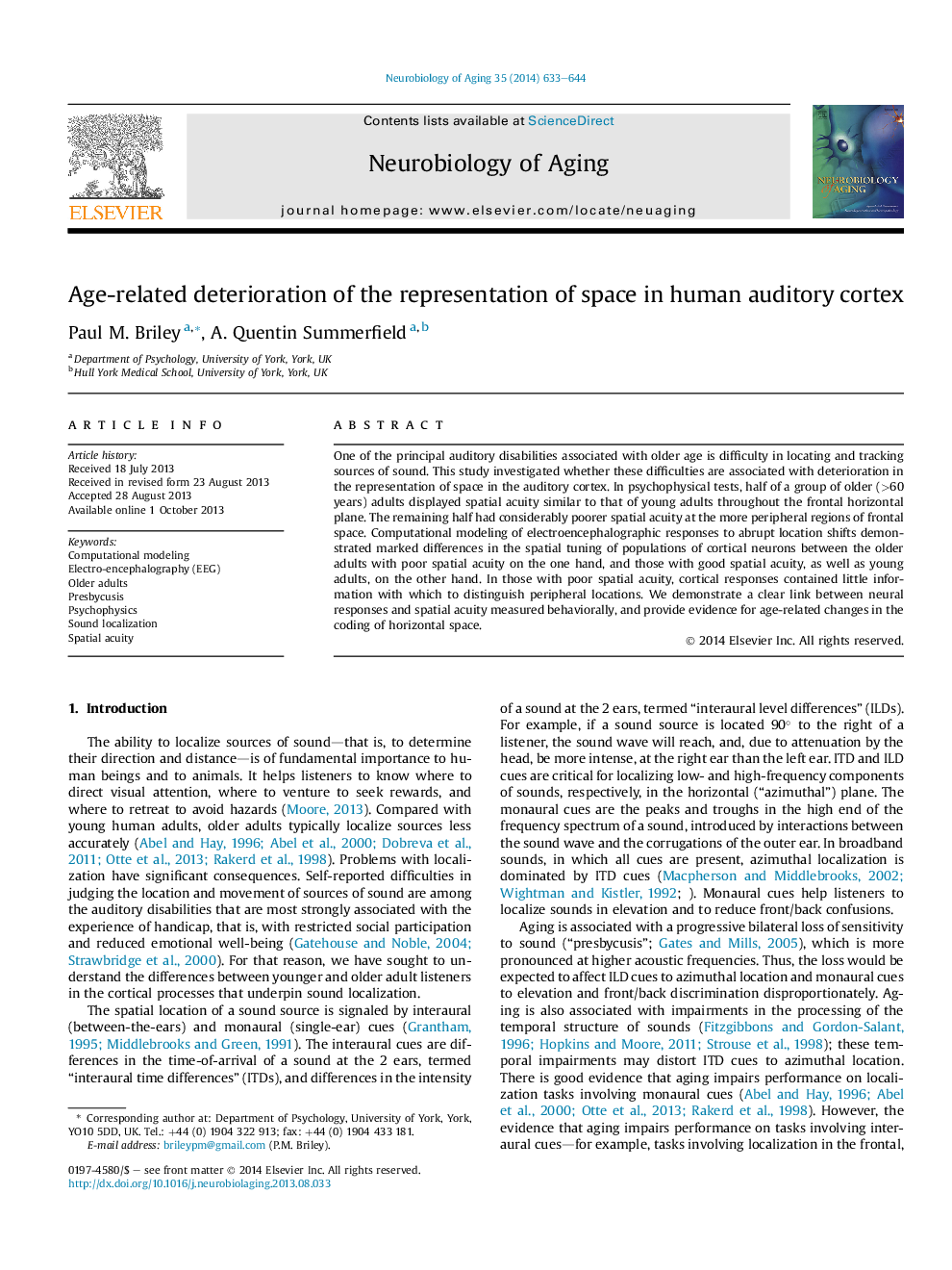| Article ID | Journal | Published Year | Pages | File Type |
|---|---|---|---|---|
| 6806279 | Neurobiology of Aging | 2014 | 12 Pages |
Abstract
One of the principal auditory disabilities associated with older age is difficulty in locating and tracking sources of sound. This study investigated whether these difficulties are associated with deterioration in the representation of space in the auditory cortex. In psychophysical tests, half of a group of older (>60 years) adults displayed spatial acuity similar to that of young adults throughout the frontal horizontal plane. The remaining half had considerably poorer spatial acuity at the more peripheral regions of frontal space. Computational modeling of electroencephalographic responses to abrupt location shifts demonstrated marked differences in the spatial tuning of populations of cortical neurons between the older adults with poor spatial acuity on the one hand, and those with good spatial acuity, as well as young adults, on the other hand. In those with poor spatial acuity, cortical responses contained little information with which to distinguish peripheral locations. We demonstrate a clear link between neural responses and spatial acuity measured behaviorally, and provide evidence for age-related changes in the coding of horizontal space.
Related Topics
Life Sciences
Biochemistry, Genetics and Molecular Biology
Ageing
Authors
Paul M. Briley, A. Quentin Summerfield,
